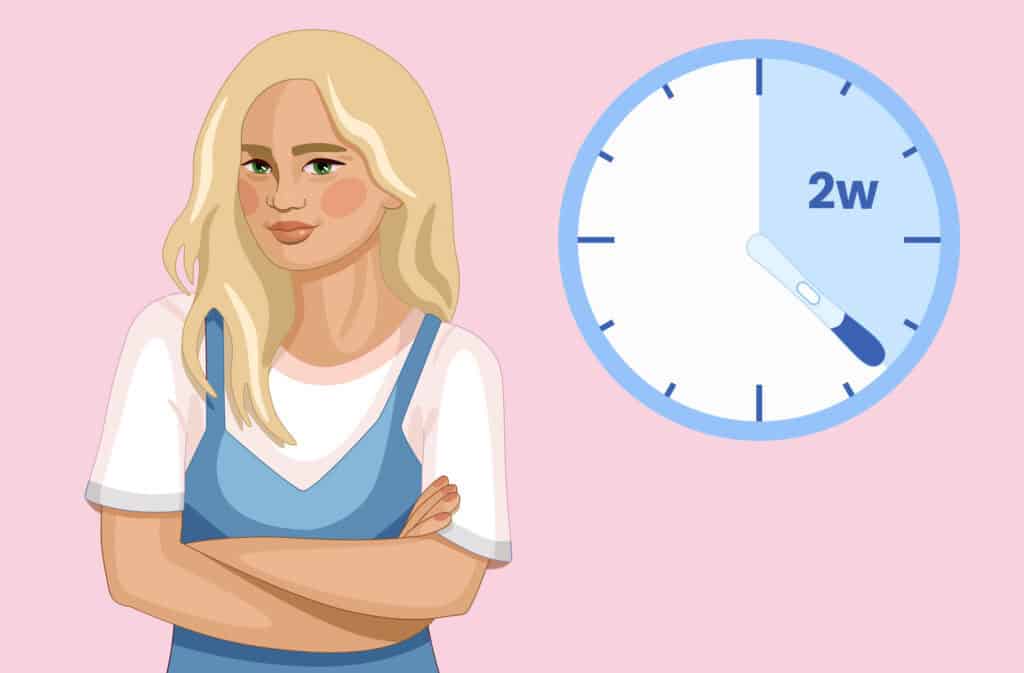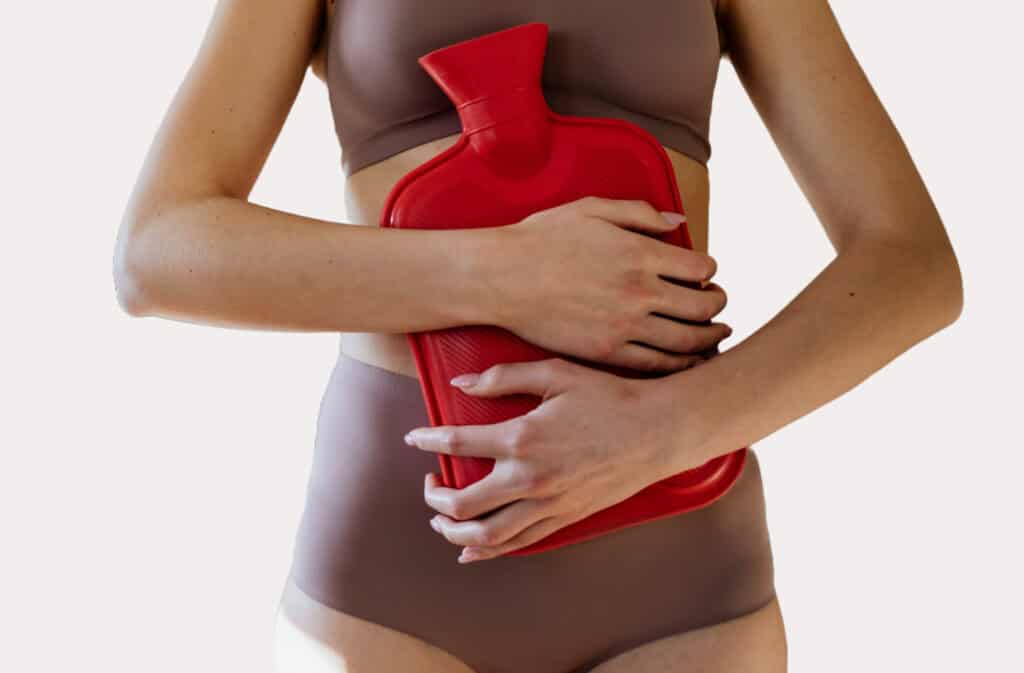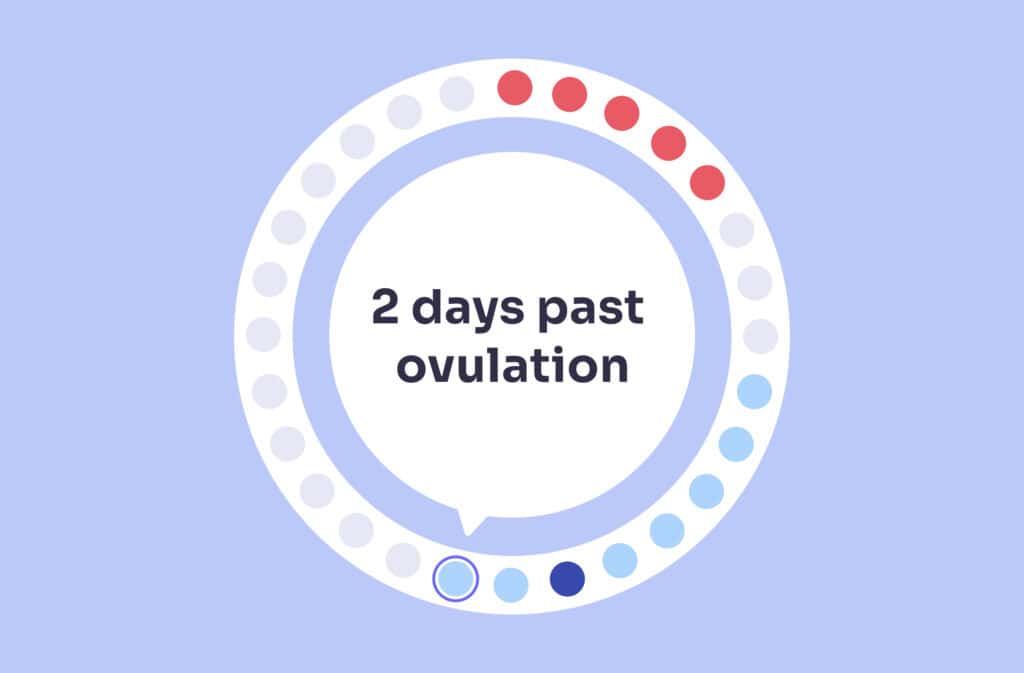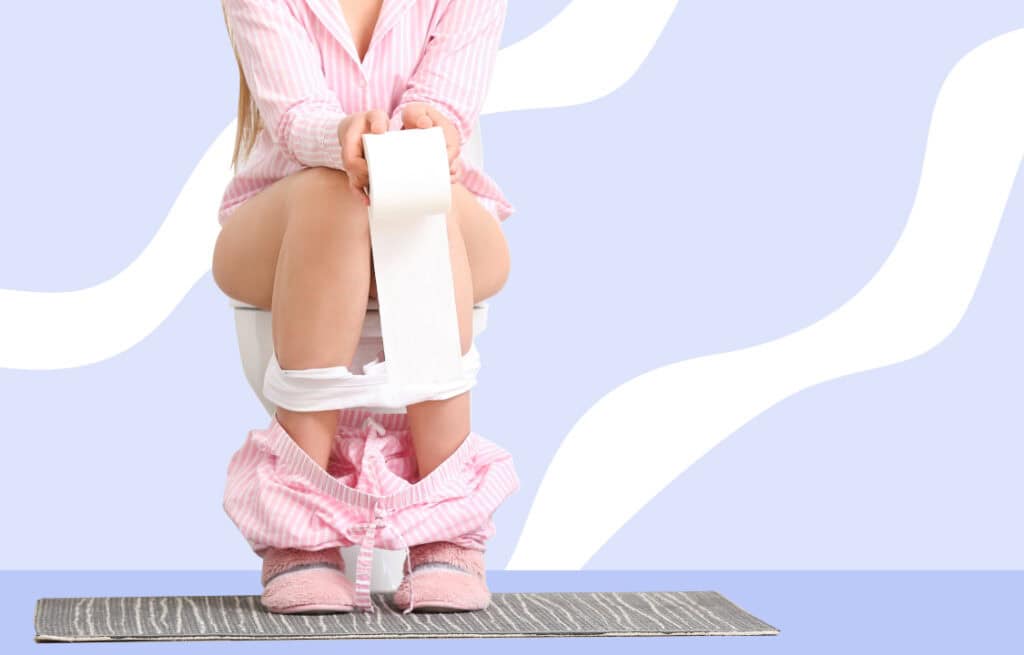Femia > Health Library > Getting Pregnant > Trying to conceive > TWW: What to expect, symptoms, and what not to do during the two-week wait
TWW: What to expect, symptoms, and what not to do during the two-week wait

- Updated Feb 18, 2025
- Published
CRAFTED BY HUMAN
Crafted by human At Femia, we provide accurate and up-to-date information at every stage of your journey, from trying to conceive, pregnancy and postnatal support. All content is created by a real person based on in-depth research and own professional experience. Femia ensures that you will receive expert advice, strict accuracy and a personalized approach from our authors/medical experts. Learn more about our editorial policy.
FACT CHECKED
Fact checked At Femia Health, we maintain the highest standards of editorial excellence in delivering content focused on helping you conceive, guiding you through pregnancy, and supporting you postpartum. Explore our content review principles to learn how we ensure the accuracy and quality of our health and lifestyle tips for every stage of your journey.
- The tww (two-week wait) is crucial, as your body needs that time to produce enough hCG hormone to be accurately detected. Doing your pregnancy test earlier can increase the chances of false negative results.
- Common two-week wait symptoms that may indicate implantation include fatigue, breast tenderness, bloating, cramping, and mood changes.
- During the two-week wait period, it is crucial to avoid stress and overanalyzing your symptoms as they can vary from person to person. Only an hCG blood or urine test taken at the right time can confirm your pregnancy. Moreover, it is recommended to avoid heavy exercise, alcohol consumption, and smoking at this time.
It is common to experience mixed emotions of anxiety, nervousness, fear, and overthinking during the two-week wait (tww) period before you take a pregnancy test. This waiting period is important because it takes time for your fertilized egg to implant in your uterine wall and start producing enough hCG hormone to be detected in the blood or urine. If fertilization and implantation do not occur, the unfertilized egg with shed, resulting in menstruation. Hence, it is crucial to wait and remain patient if you want the most accurate result.
Let’s discuss tww symptoms in detail to better understand what might indicate a positive or negative pregnancy, what to do during the two-week wait, what not to do during implantation, and what to expect in tww.
Femia offers the most accurate tool for determining ovulation and fertile days
What is the two-week wait (TWW)?
The two-week wait (tww) is the time between ovulation and just before your period or a positive or negative pregnancy result.
During the 2 week wait period, if your egg is successfully fertilized with a sperm, it implants on your uterine lining and signals the body to produce the hCG hormone which appears in blood and urine. However, if your egg does not fertilize with a sperm, it sheds out of your body with the uterine lining in the form of menstrual blood.
This entire process takes around two weeks or 14 days, hence being called the two-week wait period for an accurate pregnancy result.
👉Find out more: TTC meaning and a guide to fertility acronyms for beginners
Symptoms during the two-week wait
The common two-week wait symptoms include:
- Nausea
- Fatigue
- Cramping
- Bloating
- Mood swings
- Breast tenderness
- Increased urination
Early pregnancy vs. PMS symptoms – what’s different?
PMS (premenstrual symptoms) and early pregnancy symptoms are commonly the same – particularly mood swings, bloating, and cramping occur in both. However, early pregnancy symptoms are typically more pronounced than PMS symptoms, worsening and increasing over time. On the other hand, PMS symptoms begin to subside either as your period starts or 1-2 days in.
Two-week wait symptoms day by day
The two-week wait symptoms day by day that likely indicate a positive pregnancy commonly include:
Day 1-6
Day 1-6 after ovulation is the crucial phase when the embryo has developed but not yet implanted. In this phase, your body releases hormones like progesterone to thicken the uterine lining and prepare it for a possible pregnancy.
The symptoms of days 1-6 after ovulation are commonly mild as implantation has not occurred yet and include:
- Fatigue
- Mood swings
- Cramps in the lower back, abdomen, and pelvis
- Breast tenderness
Day 7-11
After 6-12 days of ovulation, implantation occurs, which means the fertilized egg reaches the uterus and implants in the uterine lining.
Some people may experience implantation bleeding at this time. It occurs when the embryo attaches to the uterine lining, which can disrupt blood vessels and cause light spotting.
The common symptoms of day 7 to day 11 after ovulation include:
- Implantation bleeding (light pink to dark brown spotting that lasts 1-3 days or less)
- Breast tenderness
- Lower backaches
- Nausea and vomiting
- Headaches
- Mood swings
👉Find out more: Why do you have cramps but no period: Pregnancy or something else?
Day 12-14
In a 28-day cycle, days 12-14 after ovulation are when your period is due and you can take a pregnancy test. The most reliable time to take a pregnancy test is on or after the first day of your missed period. By day 12-14 of ovulation, your symptoms may progress, becoming stronger and more frequent.
Symptoms of days 12-14 after ovulation include:
- A missed period
- Morning sickness
- Dizziness, unusual fatigue, and lightheadedness
- Nausea and vomiting
- Diarrhea and constipation
- Bloating
- Cramping
- Increased hunger
- Frequent urination
- Breast tenderness, nipple sensitivity, and changes in the color of breasts
What not to do during the two-week wait
So, what not to do during the two-week wait period? Things you should avoid during the two-week wait – because it may be the implantation period – include:
1. Avoid overanalyzing symptoms
Don’t overanalyze each symptom you experience. Remember, it can be a premenstrual symptom or just a random digestive issue because only an hCG urine or blood test done after the first day of your missed period can confirm your pregnancy. Moreover, implantation symptoms can vary from person to person.
2. Avoid stress and overthinking
Avoid overthinking and stressing out by keeping yourself busy. Plan and schedule your to-do list overnight so you don’t have time to overthink the details.
3. Avoid an unhealthy diet or lifestyle
Avoid intense exercise, smoking, and consuming alcohol or processed food as they can negatively affect a developing pregnancy. Occasional alcohol consumption or drinking during the two-week wait may not have a significant impact on implantation, but it is best to avoid it.
Femia offers the most accurate tool for determining ovulation and fertile days
What to do during the two-week wait
During the two-week wait, you should:
1. Eat a healthy and balanced diet
The first thing you should do is focus on your diet. Eating a healthy and balanced diet rich in folate, omega-3, and vitamins will help support implantation and maintain a healthy pregnancy. Add green vegetables, eggs, fish, dairy products, fruits, berries, whole grains, and nuts to your diet.
2. Daily moderate exercise
Engage in regular moderate-intensity exercise like walking, jogging, or swimming to maintain your physical and mental health, and support hormonal production and balance.
3. Engage in self-care and relaxation
To avoid stress, engage in self-care and practice relaxation techniques like yoga, mindfulness, deep breathing, aromatherapy, or body massages. Spending time outdoors is another great way to help your mind and body reset.
When to take a pregnancy test
For the most accurate results, the best time to take your pregnancy test is after the first week of your missed period. However, you can take the test anytime after the first day of your expected period. In addition, the best time of day to take a test is in the morning when you go to the bathroom for the first time.
The earliest time to take a pregnancy test is 8-10 days after ovulation. Testing too early increases the chances of false negative results as the pregnancy hormone (hCG) hasn’t built up enough in your urine and blood.
Questions from the Femia community
Should I avoid caffeine during the TWW?
Overall, coffee doesn't impact implantation or pregnancy, but excessive consumption of more than 200mg of caffeine per day from all sources including tea, soda, coffee, and chocolate, is not recommended. The U.S. Food and Drug Administration has advised women to avoid or limit their caffeine intake during pregnancy since 1980.
Can you feel implantation happening?
The signs and symptoms of implantation are quite similar to premenstrual symptoms, so it can be difficult to differentiate or feel implantation happening. Some women report mild cramping or spotting during implantation while others don't experience these symptoms, but both experiences are completely normal.
Does the TWW length change if you have irregular cycles?
It can be harder to know that you have missed your period if your cycle is irregular, because the time between ovulation and your next period can fluctuate.
Can I take supplements during the TWW?
It is best to consult your doctor before taking any supplements during the tww. Generally, taking prenatal vitamins, omega-3, and folic acid are all safe during the tww.
The bottom line
The two-week wait (tww) is a crucial time when your body produces the pregnancy hormones progesterone and hCG to thicken the uterine lining and support it for implantation. The embryo, if successfully fertilized, implants in the uterine lining. If the egg does not fertilize, it sheds out of the body with the thickened uterine lining in the form of menstruation, indicating that pregnancy did not occur.
Hence, you need to give your body this 2 weeks’ time after ovulation for the entire uterine thickening and implantation or menstruation process to happen. Otherwise, you may experience a false negative pregnancy result.
Common 2-week-wait symptoms include fatigue, breast tenderness, bloating, cramping, and mood changes. During the tww period, it is important to avoid strenuous exercise, excessive alcohol consumption, and smoking, and maintain a balanced and healthy diet to support a healthy pregnancy.
Moreover, it is crucial to avoid overanalyzing each symptom you experience during the tww, as the symptoms can vary from person to person and only an hCG blood or urine test taken after your missed period can confirm your pregnancy.
References
- —. “Pregnancy Tests.” Cleveland Clinic, 9 Sept. 2024, my.clevelandclinic.org/health/diagnostics/9703-pregnancy-tests.
- —. “Doing a Pregnancy Test.” nhs.uk, 13 Dec. 2024, www.nhs.uk/pregnancy/trying-for-a-baby/doing-a-pregnancy-test.
- —. “Signs and Symptoms of Pregnancy.” nhs.uk, 9 Dec. 2024, www.nhs.uk/pregnancy/trying-for-a-baby/signs-and-symptoms-of-pregnancy.
- “Coffee and pregnancy.” National Library of Medicine, pmc.ncbi.nlm.nih.gov/articles/PMC1804190.

Learn effective self-care tips for managing endometriosis symptoms and optimizing fertility. Discover how diet, exercise, and stress management can improve your quality of life.

Learn about common symptoms at 2 days past ovulation (2 DPO), hormonal changes, and what to expect. Understand when pregnancy tests can provide accurate results. Expert advice from Femia.

Learn is diarrhea a sign of pregnancy, its other reasons, early pregnancy symptoms alongside digestion issues, and treatment options.

